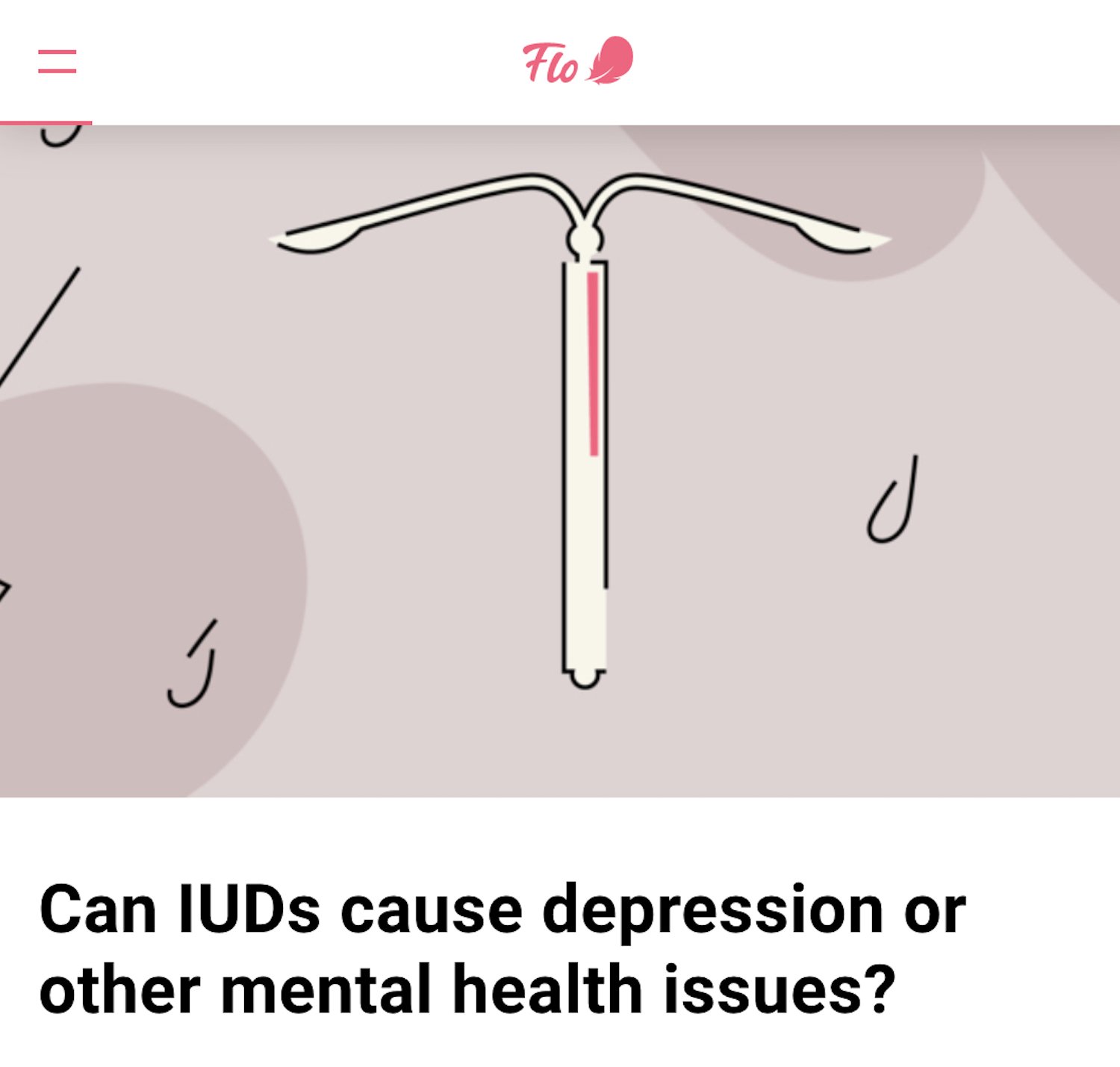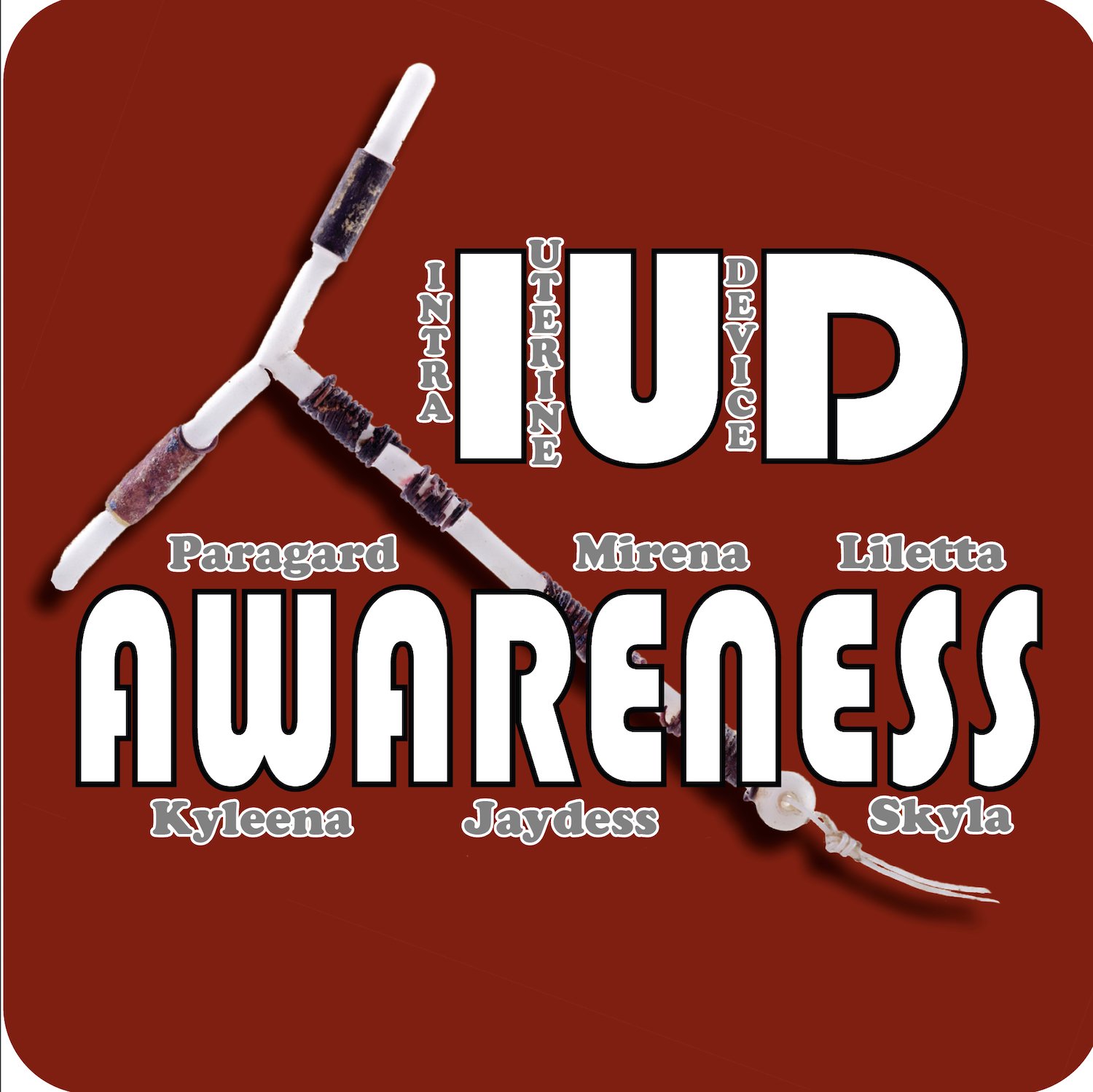IUDs and Depression: How Are They Related?
/ Internet Link
IUDs and Depression: How Are They Related?
Updated on April 23, 2020
By Tanya Tantra, MD - Flo
“Whether or not IUDs cause mental health issues isn’t a universal yes-or-no question. Each woman’s hormonal profile is different, so the low levels of progesterone that hormonal IUDs emit may or may not affect your overall hormonal balance or mood.
There are a few things about IUDs that make them a popular form of birth control. The hormonal IUD has a low dose of progesterone, which mainly has a local effect in the uterine cavity. Hormonal IUDs can last anywhere from three to five years, making them great for long-term family planning.
Some studies have indicated that there is no correlation between IUDs and depression or anxiety. However, other studies show that women who have a history of depression and anxiety, or mental health issues related to those two conditions, may have a negative experience with hormonal birth control of any sort. Research into the effects of added female hormones from birth control has been extensive and is still inconclusive. Essentially, whether or not an IUD will cause depression depends on each woman’s individual chemical makeup.”
“When to see a doctor
If you notice a difference in your overall mood after having your IUD implanted, it’s important to consult with your doctor to determine whether you’re suffering from depression. There are many signs of depression, some of which may seem benign or may go unnoticed as part of the everyday stresses of life. The more obvious signs of depression include frequent, lasting feelings of emptiness, sadness, or hopelessness and loss of interest in activities that used to bring you joy. Other common symptoms of depression include anxiety, irritability, frustration, and feelings of worry.
There are other, less obvious symptoms of depression that include overwhelming feelings of blame, guilt, or worthlessness. You may also notice that your eating and sleeping habits change, which can lead to unintentional weight gain or loss. Lack of energy is another symptom of depression that is often attributed to other causes.
Perhaps the least obvious symptoms of depression are slower movements, difficulty concentrating, and slowness of thoughts. For example, if you’re naturally quick-witted, your capacity to think on your feet may be reduced. You may also have slower speech patterns, problems making decisions, or difficulty remembering things.
Seek help immediately if you’re having thoughts of harming yourself or others or if your mood swings are affecting your daily life, job, or relationships.
If the IUD is to blame, fortunately, they are easy to remove, and the effects are completely reversible. However, it may take a few days or weeks for your hormone levels to return to normal.”


































March 25, 2023
Nutritional Balancing